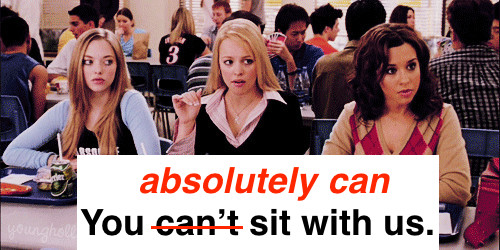We at RedMonk spend a fair amount of time every year attending, speaking at, and hosting conferences. While there are no silver bullets for creating a successful event, there are small details I’ve noted that can have an outsized impact for newcomers. Here are a few relatively minor observations about how we can collectively help make industry events more welcoming.
As a Speaker
Rather than starting your talk with, “Show of hands: how many people are familiar with [technology x]?” (or worse, “how many people haven’t heard of [technology x]?”), begin with the assumption that there is someone in the room who is not familiar with it. You don’t necessarily have to explain it great detail, but plan on level-setting without the audience telling you that you should.
Why this helps: When you’ve worked in an industry for a while, it’s easy to forget just how much knowledge you’ve accumulated. You have the benefit of having a wealth of experience, and thus there are a broader range of tools/concepts that are at least at some level familiar to you. More importantly, once you’ve built up expertise in one area, it is easier to publicly grapple with the things you don’t know because your confidence remains anchored in the abilities you do have. Newcomers don’t have either of these yet.
Help your audience be excited to learn no matter their starting point: don’t ask for shows of hands. Plan on needing to include a quick introduction to your topic.
As an MC
This conference is amazing! A technological luminary is about to speak, and you are the lucky person that gets to usher them onto the stage. You couldn’t be more excited, and neither could many people in the audience. (Some of the people bought their tickets just to watch this one person talk.) I know you’re excited to dive in, but please don’t introduce the speaker as, “a person who needs no introduction” or “I think we all know what having [person x] here means to us.”
Why this helps: Remember there are also people at the event who are new to the industry that are still learning all the big names. Give the newcomers a bit of context so they can be as awestruck as the rest of the group.
Share a quick intro for the tech celebrity as you would other speakers, and maybe give a couple thoughts about why their accomplishments are important to the space. I’m positive the speaker won’t mind the kind words, and this easy act will help everyone in the room join in the excitement of learning from an expert.
As an Event Organizer
Q&A sessions and group discussions can be an excellent way to engage the audience. They’re a great opportunity to dive deeper, share expertise, and build a meaningful dialogue; however, be cognizant of which voices are amplified and which voices are missing from this style of discussion. If you truly want to encourage broad exchange of ideas at your event, recognize that many people (including people new to the industry) will often not feel comfortable publicly participating in group-wide forums.
Why this helps: Newcomers have thoughts and perspectives on the presentations. Their contributions and questions are valid, but even so, not many newcomers will feel ready to share their insights in front of a large group. (Bonus! This discomfort is also applicable to many introverts no matter their experience level.)
If you want to create more opportunities for more people to have a voice, recognize that some people flourish in smaller discussion settings. This isn’t to say it’s not valuable to host group-wide discussions; there’s a place for that. But you should also provide space for people who are not interested in speaking in front of the whole group to share their thoughts. Consider the balance you’re striking between hallway track time and Q&A time, and think about which populations you’re serving with each.
This isn’t to say the hallway track is a utopia for newcomers; it can also be stressful for new people to introduce themselves and find a welcoming group. Consider encouraging (or creating) resources for diverse populations or industry newcomers to connect. This can be anything from a formal mentoring program to something as informal as a Slack channel; anything you can do to help make connections and build support networks will be appreciated.
As an Attendee
Your interactions can not only change someone’s perception of a specific conference but also their perception of the industry as a whole. It’s on all of us to make tech an open and welcoming place.
Why this helps: Kindness matters.
Invite people around you to join your discussions. Introduce yourself to people who seem a little lost or unsure of themselves. Be friendly!
While these are not hard-and-fast rules, they will hopefully surface some of the challenges that come with being new to an industry. Try to be considerate of people still in the early stage of their career. There are plenty of small gestures we can all take to help make conferences a more welcoming place for newcomers.

James Campbell says:
April 6, 2017 at 3:40 pm
This is a great synthesis of best practices and a good reminder. Thank you!
Lauren Campbell says:
April 9, 2017 at 10:20 am
Well stated and this would sure have improved several conferences for me.